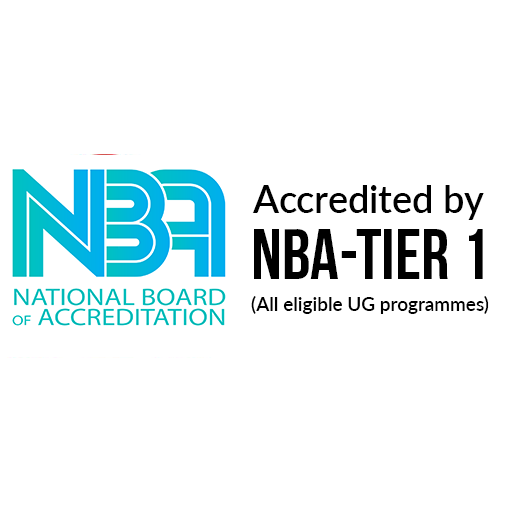Preparing for the Joint Entrance Examination (JEE) is one of the most demanding academic journeys for engineering aspirants. Thousands of students compete each year to secure seats in top institutions like IITs, NITs, and IIITs. However, many capable students fall short—not because of lack of potential, but due to avoidable mistakes during preparation.
In this guide, we’ll explore the most common JEE preparation mistakes students make, ways to avoid them, and how DR.MCET, a reputed engineering college in Coimbatore helps students in building stronger academic foundations and exam strategies.
1. Starting Preparation Without a Proper Plan
One of the biggest mistakes JEE aspirants make is beginning their preparation without a roadmap. They often pick random chapters, follow inconsistent study patterns, and end up feeling overwhelmed.
How to Avoid This Mistake
-
Make a year-long study plan with weekly and monthly goals.
-
Prioritize chapters based on weightage and difficulty level.
-
Include revision blocks in your schedule.
-
Track your progress and adjust your plan as needed.
How MCET Helps
MCET provides students with:
-
Structured academic calendars
-
Subject-wise study plans
-
Time management workshops
-
Faculty mentoring sessions to align each student with a realistic preparation plan
This ensures students stay consistent and avoid last-minute stress.
2. Ignoring NCERT—The Foundation of JEE
Many aspirants jump straight into high-level books and start solving advanced questions without first mastering the NCERT concepts. This leads to weak fundamentals and difficulty understanding JEE-level problems.
How to Avoid This Mistake
-
Build a strong foundation with NCERT textbooks, especially for Chemistry and Physics basics.
-
Solve all examples, back exercises, and diagrams.
-
Use NCERT as a quick revision tool during the final preparation months.
How MCET Helps
MCET emphasizes concept-based learning, ensuring:
-
Every student masters NCERT concepts before advancing
-
Regular concept tests are conducted
-
Teachers explain NCERT chapters with real-life applications
This creates a strong base for tackling difficult JEE-level questions.
3. Over-Reliance on Rote Learning
JEE tests application-based understanding, not memorization. Students who rely on mugging formulas or shortcuts often struggle with conceptual and tricky questions.
How to Avoid This Mistake
-
Focus on understanding why a formula works.
-
Solve problems that apply the concept in different ways.
-
Practice numerical and analytic reasoning regularly.
How MCET Helps
MCET follows:
-
Practical-based teaching methods
-
Lab sessions for Physics, Chemistry, and Engineering concepts
-
Concept application workshops
This trains students to think logically rather than memorize blindly.
4. Not Solving Enough Mock Tests and Previous Year Papers
Many students underestimate the importance of practice under exam-like conditions. Even if they know the concepts, they struggle with time management and accuracy during the actual exam.
How to Avoid This Mistake
-
Take at least one mock test per week in the early stages.
-
Increase to 3–4 mock tests per week closer to the exam.
-
Analyse each test carefully—identify weak topics and improve them.
How MCET Helps
MCET provides:
-
Regular mock test sessions
-
Previous year paper discussions
-
Detailed performance analytics to pinpoint improvement areas
Faculty members help students understand patterns, improve speed, and reduce negative marking.
5. Avoiding Difficult Topics
A common mistake is skipping difficult or less-liked topics—often the ones that frequently appear in the exam. Avoiding these creates gaps in understanding and affects overall performance.
How to Avoid This Mistake
-
Break complex topics into smaller parts.
-
Follow a step-by-step learning approach.
-
Take help from teachers, peers, or online resources.
-
Practice more questions from challenging chapters.
How MCET Helps
MCET teachers:
-
Provide extra classes for tougher chapters
-
Offer one-to-one doubt clarity sessions
-
Maintain doubt counters and special remedial hours
This ensures students get the guidance they need to master challenging concepts.
6. Not Revising Consistently
Revision is often ignored until the last few weeks before the exam. This leads to confusion, forgotten formulas, and poor retention.
How to Avoid This Mistake
Use a 3-layered revision method:
-
Daily revision of what you study
-
Weekly revision of completed chapters
-
Monthly revision using mock tests
Solve quick quizzes, flashcards, and summary notes regularly.
How MCET Helps
MCET provides:
-
Periodic revision cycles
-
Mini-tests, quizzes, and rapid revision worksheets
-
Semester-based review systems that build retention
This systematic approach helps students remember concepts long-term.
7. Lack of Doubt Clearance
Unresolved doubts accumulate and cause confusion during the exam. Students often skip asking questions out of hesitation or lack of guidance.
How to Avoid This Mistake
-
Make it a habit to clear doubts immediately.
-
Maintain a separate “doubt notebook.”
-
Discuss doubts with teachers, mentors, or study groups.
How MCET Helps
MCET ensures:
-
Open-door faculty policy
-
Dedicated doubt-clearing sessions
-
Peer study groups and mentor support
This environment encourages students to seek help without hesitation.
8. Poor Health and Sleep Management
Many aspirants sacrifice sleep, skip meals, and stress excessively. This leads to burnout, low concentration, and decreased performance.
How to Avoid This Mistake
-
Sleep 6–7 hours daily
-
Maintain a balanced diet
-
Take short breaks during study
-
Practice meditation or light exercise
How MCET Helps
MCET supports students with:
-
Stress management workshops
-
Counselling services
-
Healthy campus environment and sports activities
This helps students maintain mental and physical well-being during preparation.
9. Comparing Yourself With Others
Many students constantly compare their scores with peers, which affects confidence and motivation.
How to Avoid This Mistake
-
Focus on self-improvement, not competition.
-
Track personal progress week by week.
-
Set realistic goals for yourself.
How MCET Helps
MCET promotes:
-
Individual learning paths
-
Personalized mentoring
-
Supportive student community
This helps students grow without unnecessary pressure.
Final Thoughts
Cracking JEE requires dedication, consistency, and smart preparation. While mistakes are common, they are easy to avoid with the right guidance and strategy.
DR.MCET, one of the the top engineering colleges in Coimbatore play a crucial role in shaping a strong academic foundation by offering:
-
Expert faculty guidance
-
Regular mock tests
-
Personalized mentoring
-
Concept-driven teaching
-
Stress management support
-
Structured revision programs
By avoiding the common mistakes listed above and following a disciplined plan, students can significantly improve their chances of success in JEE 2026 and beyond.








